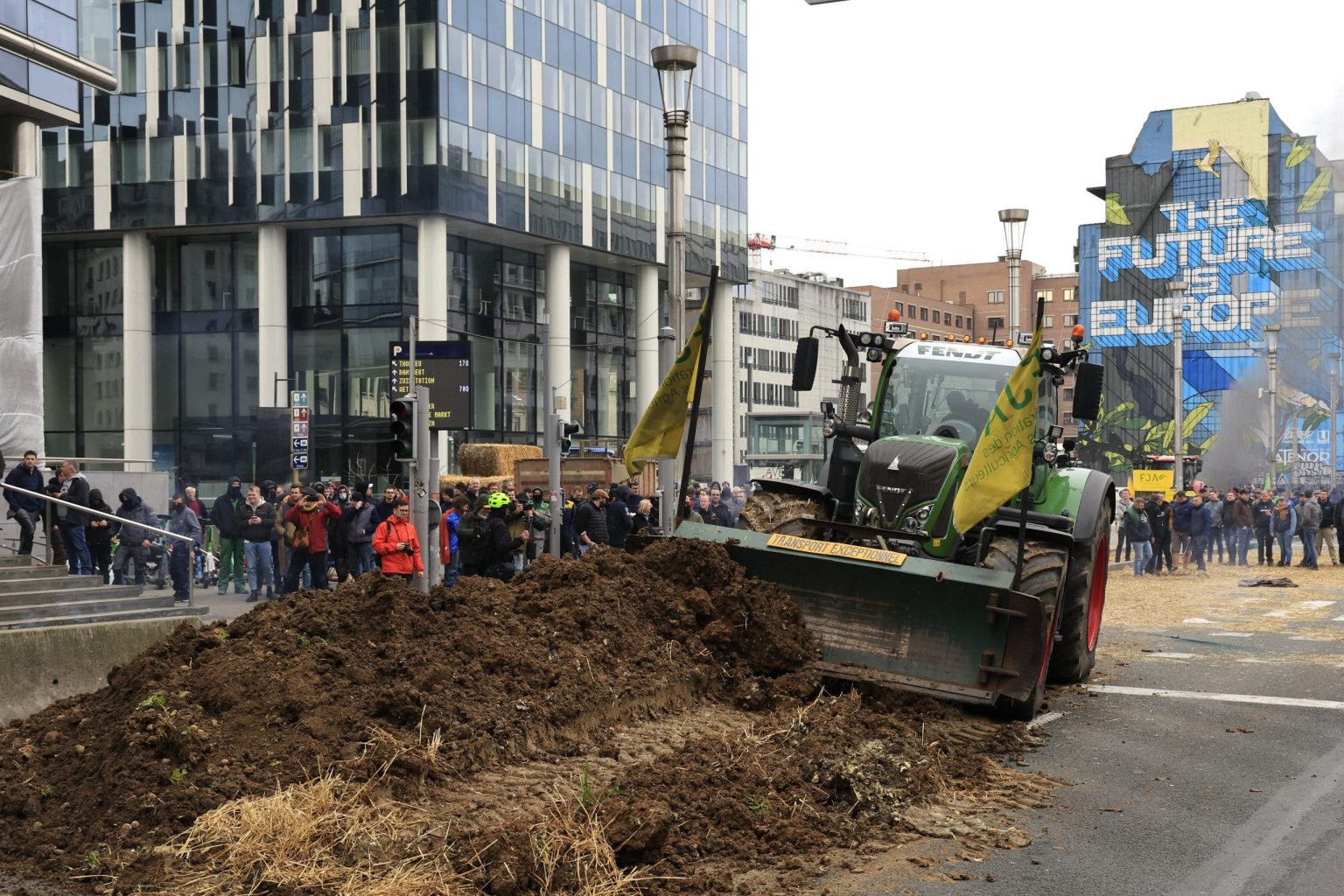Farmers across the European Union have been protesting for months against what they see as excessive red tape, unfair trading practices, and increased environmental measures. The protests turned violent on Tuesday as hundreds of tractors sealed off streets near the EU headquarters where agriculture ministers were meeting to address the crisis. Farmers threw beets and sprayed manure at police, who responded with tear gas and water cannons.
The protests have already led to concessions from EU and national authorities, with loosening of controls on farms and weakening of pesticide and environmental rules. In response to the pressure from farmers, the EU parliament has given provisional approval to proposals that weaken or cut rules in areas like crop rotation, soil cover protection, and tillage methods. Small farmers, who make up two-thirds of the workforce, will be exempt from some controls and penalties.
The postponement of a major EU plan to protect nature and fight climate change highlights the deep influence the protests have had on politics. Environmentalists and climate activists are concerned about the long-term consequences of the concessions made to farmers, as they fear it will hinder efforts to address climate change in the future. The protests have also become a rallying cry for populists and conservatives who criticize EU policies as bureaucratic and out of touch.
The farmers argue that agriculture should be a priority for the EU and that they are in favor of environmental protection but feel burdened by administrative tasks and restrictions. The protests have spread from Finland to Greece, Poland, and Ireland, with farmers demanding a fairer system that allows them to make a living from their profession. The EU parliament is expected to make a final decision on the proposals in late April, despite concerns from environmentalists.
The protests have disrupted daily life in Brussels, with authorities advising commuters to stay out of the city and work from home as much as possible. The clashes between farmers and police have brought attention to the challenges facing agriculture in the EU, as well as the broader concerns about climate change and environmental protection. The future of EU policies on agriculture and the environment will likely be shaped by the ongoing protests and the concessions made to appease farmers.


